Compliance Checks
-
-
-
- Alton Pump Services offer comprehensive compliance inspections that can provide clarity and reassurance with regards to the latest legislation updates from the Environment Agency.
- Our fixed-price reports can provide a full CCTV survey of the whole drainage network on the property, especially when there is a septic tank or cesspit involved.
As part of our standard package, you will receive:
An engineer’s report of all findings, including recommendations for any remedial works required
The system will be checked for compliance in accordance with the latest 2020 Environment Agency’s legislation Septic tank regulations
If the system is found to be compliant, we can issue a ‘Compliance Certificate’ giving a summary of our findings and evidence of compliance.
Any works required will be sent as a quotation to show exactly what is required to keep the system safe, compliant and running smoothly.
These comprehensive surveys start from £350+vat and reports are usually sent out within 48 hours of the results being submitted.
If you own a septic tank or package sewage treatment plant, it’s important to ensure that it is in compliance with regulations and functioning properly. Compliance checks for septic tanks are essential to maintain the health and safety of your property and the surrounding environment. In this article, we will discuss the importance of compliance checks for septic tanks and how to go about conducting them.
Why are Compliance Checks Important?
Compliance checks for septic tanks are crucial for several reasons. Firstly, they help to prevent the contamination of groundwater and nearby water bodies. Septic tanks that are not functioning properly can leak harmful bacteria and chemicals into the soil, which can then seep into the water supply. This poses a serious threat to human health and the environment.
Secondly, compliance checks ensure that your septic tank is working efficiently. Regular inspections can identify any potential issues or malfunctions before they become major problems. By addressing these issues early on, you can save yourself from costly repairs or replacements down the line.
Lastly, compliance checks are often required by local regulations and health departments. Failing to comply with these regulations can result in fines or penalties. By conducting regular compliance checks, you can stay on top of any necessary maintenance or repairs and ensure that your septic tank meets all legal requirements.
How to Conduct Compliance Checks for Septic Tanks
1. Schedule Regular Inspections: It is recommended to have your tank inspected by a professional at least once every three to five years. During the inspection, the professional will assess the condition of your tank, check for any leaks or blockages, and ensure that all components are functioning properly.
2. Monitor Water Usage: Excessive water usage can put a strain on your septic system. Be mindful of your water consumption and avoid activities that can overload the system, such as doing multiple loads of laundry in a short period or taking long showers.
3. Proper Waste Disposal: Only flush or drain items that are approved for septic systems. Avoid flushing non-biodegradable items, chemicals, or excessive amounts of grease down the drain, as these can clog or damage your septic tank.
4. Regular Pumping: Depending on the size of your tank and the number of people in your household, you may need to have your septic tank pumped every three to five years. Pumping removes the accumulated solids from the tank, preventing backups and ensuring proper functioning.
5. Maintain Drainage Fields: The drainage field is an integral part of your septic system. Avoid parking vehicles or placing heavy objects on the drainage field, as this can compact the soil and hinder proper drainage. Additionally, avoid planting trees or shrubs with extensive root systems near the drainage field, as the roots can infiltrate the pipes and cause damage.
In conclusion, compliance checks for septic tanks are essential to maintain the health and functionality of your septic system. By scheduling regular inspections, monitoring water usage, practicing proper waste disposal, and maintaining drainage fields, you can ensure that your septic tank is in compliance with regulations and operating efficiently. Remember, a well-maintained septic tank not only protects your property but also safeguards the environment and public health.
Regular Maintenance: To ensure your septic tank is running optimally, it is important to perform regular maintenance. This includes checking for any signs of wear and tear, such as cracks or leaks, assessing the condition of the pipes and other components, and ensuring that all valves are functioning properly. Additionally, you should periodically check the level of sludge and scum in your tank, as this can indicate a potential problem. A professional should be consulted if any issues are discovered.
-
-




